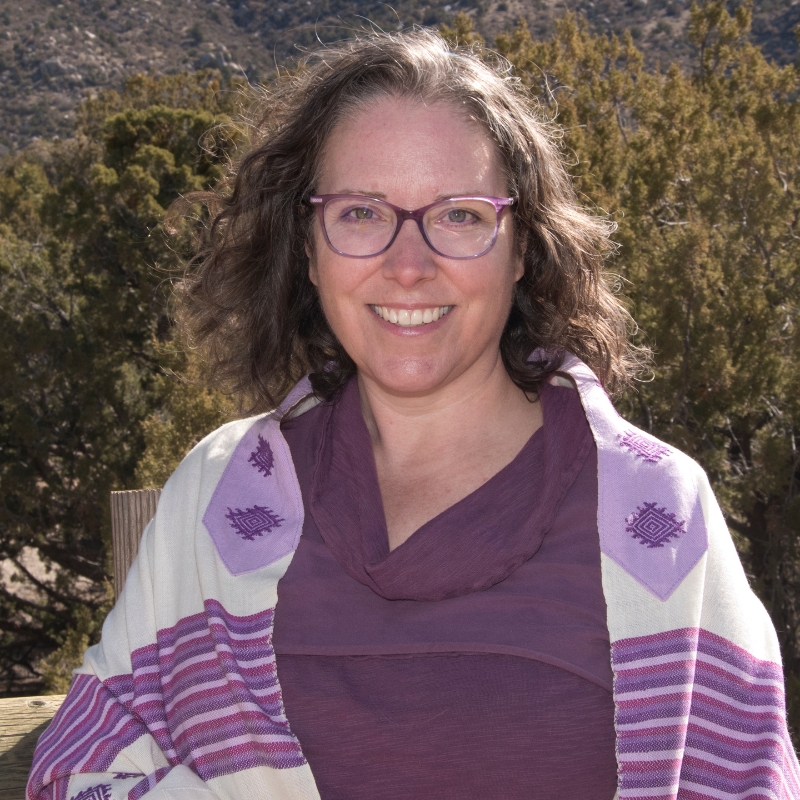One of my students taught me his Torah of 1+1=1. After each individual in each tribe is numbered and counted, Aaron blesses the people of Israel not as individuals or separate tribes (Numbers 6:23), but as one whole community, echoing the first verse in Vayakhel. Vayakhel tells us that if anyone is missing from our community, we can’t build the Mishkan — the Tabernacle — and then God’s presence among us is diminished. Judaism assumes concern for every person. Commanded to love our neighbors as ourselves, we understand that if we fail to see a member of our community, it is because we are not looking for them with enough love.
Long before COVID, many immunocompromised, medically vulnerable, and disabled members of our communities were excluded to varying degrees, and our exclusion was often barely noticed. With the COVID pandemic, we had a collective opportunity to improve our eyesight and more lovingly see and care for these members. We could have become more curious and more creative and asked those most affected how to build the social and practical structures that would have offered genuine access. Instead, as a general experience, once the majority determined they no longer needed what we needed, the Jewish world returned to insisting that the Mishkan could be built without us. There was a collective decision that it is okay if many of us are relegated to watching community rather than being in it.
Find more commentaries on Vayakhel.
Our parshah holds us accountable to an expansive understanding of community: “Moses then brought together the whole Israelite community — Et kol adat b’nei Yisrael — and said to them: These are the things that THE ETERNAL has commanded you to do.” (Exodus 35:1)
There are 1,558 words in Vayakhel made up of 6,181 letters. Among all of those words are these five: et kol adat b’nei Yisrael. The ayin and dalet of adat make the word ed, “witness,” and call us to pay careful attention. Adat is “community of” — a congregation. Kol means all. Et, a Hebrew word with no English equivalent that indicates a direct object, creates a sense of emphasis. Et kol adat insists that Moses brought together the complete Israelite community. No one was missing.
Or HaChaim, the Moroccan 18th century rabbi, asks and answers: Why would the Torah even mention that Moses assembled the people, something that happened so often? The word “kol” included orphans, minors, women, and other people who weren’t always assembled and didn’t expect to be included. Why not explicitly invite the wealthy? Because the wealthy man was always in the assembly and he would assume his place was being saved for him this time as well (Or HaChaim on Exodus 35:1). Inclusion is only necessary when someone is already excluded. Rabbi Joseph B. Soloveitchik teaches that Judaism has always viewed humanity from the dual perspective of seeing every individual as independent and also as a limb of the body of Israel, a member of a community (On Repentance, 114).
Find more commentaries on Ableism.
In addition to the words and letters in Vayakhel, there are 79,980 words altogether in the Torah, created from 304,805 letters. Which one could we do without?
“When I [Rabbi Meir] came to Rabbi Yishmael, he said to me, ‘My son, what is your occupation?’ I told him, ‘I am a scribe,’ and he said to me, ‘Be meticulous in your work, for your work is the work of heaven — perhaps you will omit one letter… you would thereby destroy the entire world” (Talmud Eruvin 13a).
Rashi, expanding on this teaching, explains that if one were to leave off the aleph in the phrase, “THE ETERNAL our God is true,” the word true/emet instead becomes met and means dead. Exclude one letter and God, God forbid, is murdered. Exclude one letter and the entire world is destroyed.
In a true community of belonging, we wouldn’t need to include folks who are vulnerable because they would not have been excluded in the first place. We would know that we need every single member of our community to build the Mishkan, and we would know that when we are incomplete, so is God. We would do better. We should do better.
If, like me, you are immunocompromised, or if in some other way you are here with your gifts waiting for someone to see you, I am looking for you. You are the letter we cannot do without. I know you are here. I’m glad we are here together.
Rabbi Amy Josefa Ariel (she/her) is an independent, immunocompromised rabbi who teaches and serves an international Jewish community entirely online. www.amyjosefaariel.com

